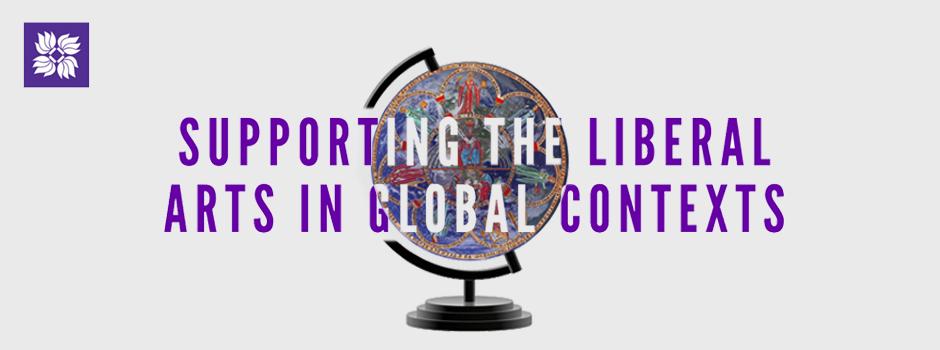In keeping with its mission to offer a liberal arts and sciences education, NYU Shanghai hosted a Colloquium on Supporting the Liberal Arts in Global Contexts on March 10-11 to examine challenges that higher education faces in changing contexts of liberal arts.
Organized by The Writing and English for Academic Purposes Program, the two-day colloquium featured four plenary speeches delivered by university leadership, senior education researchers and education writers, including Karin Fischer, senior writer at the Chronicle of Higher Education and James Barber, Associate Professor at the William & Mary School of Education.
The talks were supplemented by four panel discussions that covered various aspects of liberal arts, such as curricula design, demands of writing and speaking, its relations with professional fields, as well as what the liberal arts might mean across the NYU global network.
After a welcome message by Chancellor Yu Lizhong, Vice Chancellor Jeffrey Lehman kickstarted the two-day event, stating that a well-tailored liberal arts education model should equip students with both deliberate and spontaneous approaches to creativity.
Brandon Conlon, Associate Director of EAP, who co-organized the colloquium along with Amy Becker, Director of Writing and EAP, said a conversation was necessary to scrutinize the fact that the liberal arts education model was being challenged in the United States while being adopted elsewhere outside of the US.
“The context of NYU Shanghai is a case in point,” Conlon said. “The colloquium seeks to clarify that liberal arts education is not simply ‘a set of majors’ but that it is about defining a life-long value orientation towards becoming a certain kind of person through education. This requires coordinated institutional effort across the core curriculum and both within, outside of, and across major areas of study.”
Sponsored by NYU Provost’s Global Research Initiatives, the Colloquium brought together some 100 participants, including faculty and staff from New York and Abu Dhabi campuses, as well as higher education professionals from Yale-NUS College, Duke Kunshan University, Fudan University, Tsinghua University, Minerva Schools, United International College and Xing Wei College.
In his keynote speech, Professor Gerard Postiglione of The University of Hong Kong said he has been keeping close watch on China’s search for a unique and exportable model of higher education.
“Although economic globalization has driven China’s universities toward an isomorphism with the Western university model, including a keen interest in liberal arts education, it has also led to a search for a new model designed for a new world order,” he said.
On Saturday, Provost Joanna Waley-Cohen concluded the colloquium, encouraging research collaborations and the development of team-taught courses that transcend disciplines.
“Education should not just be narrowly focused; it should open students' minds to the infinite range of possibilities that interaction with people with different interests can offer. For that purpose, the best faculty are those who are ready to communicate beyond their own areas of expertise,” she said.



